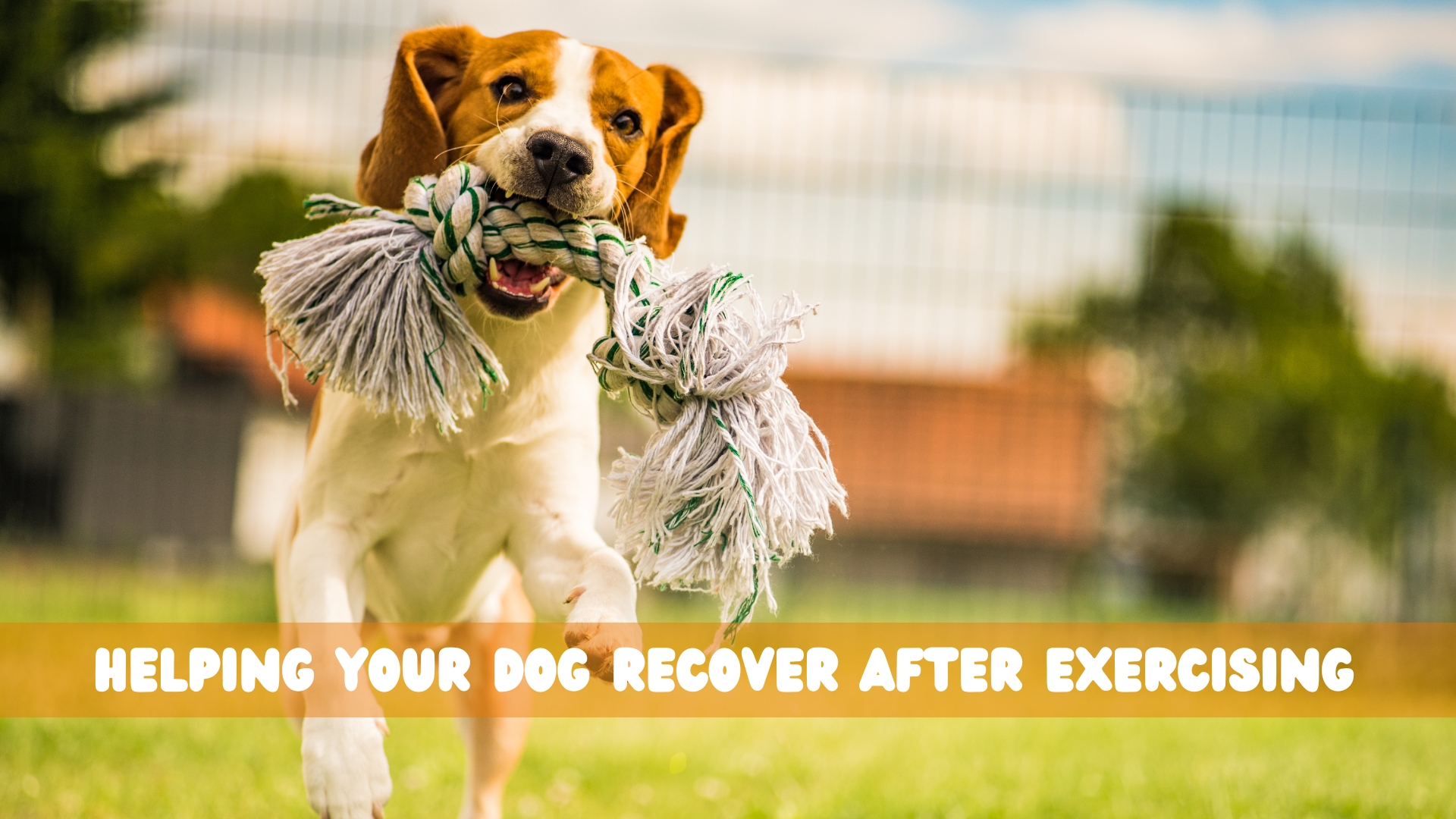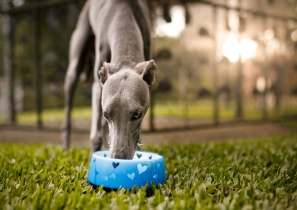Helping your dog recover after exercise!

How to provide your dog with recovery support after intensive exercise
Although daily walks and regular exercise are both essential for a healthy and happy dog, sometimes intense or new exercise can leave them a little bit out of sorts.
Perhaps they’ve exercised in a way that they’re not necessarily used to (for example an agility class, an extra-long hike or a big swimming session), or they’ve recently been poorly and their fitness levels have deteriorated, or maybe they’re just getting a little bit older and struggling to fully recover from exercise like they did before – in any case, here’s some great ways of replenishing your dog’s nutrients, restoring their energy levels and getting them back to their happy and healthy selves.
Nutriment Recovery Support
The award-winning Nutriment Recovery Support is a specially formulated recipe designed specifically to deliver the right nutrition to encourage recovery after exercise, injury or illness. Featuring white fish and organic chicken to deliver high quality protein and healthy fats, and mushroom polysaccharides, blueberries, salmon oil, spirulina and turmeric for their antioxidant and vitamin and mineral content, this formula is ideal for stocking up on for when your dog needs that extra kick of nutrition after intensive exercise.
When dogs are in recovery mode, they might experience a slightly weakened immune system whilst their bodies divert energy and nutrients to restore full body health and function. Feeding nutrient-rich meals such as Recovery Support ensures that the immune system isn’t compromised and restores your dog’s mind and body to full health as quickly as possible.
Bone broth
You may have heard about the benefits of bone broth for humans on social media, but it’s also a fantastic way to replenish a dog’s nutrients as well. Bone broth is packed in essential nutrients such as protein, calcium, and lots of vitamins and minerals, which support the nervous system, muscle contractions, heart health, sleep and hydration. These areas are all critical to regulate after a period of extensive exercise. Also abundant in bone broth is glucosamine, hyaluronic acid, collagen and chondroitin, which are all essential for the repairing and strengthening of joints.
Bone broth is a stock liquid made from slowly cooking meat bones at a low heat for an extended period of time. A simple and easy homemade beef bone broth recipe needs just 4 ingredients: beef marrow bones, carrots, celery and rosemary. Add these ingredients to a large soup pot, along with enough water so submerge all ingredients. Bring to the boil, then reduce to a simmer (with the lid on) for around 9 hours. Remove the bone(s) and allow to cool to room temperature, then serve! Bone broth can also be frozen if you want to prepare a batch in advance. Other bones such as chicken, turkey or lamb can be used, but ensure all bones are removed from the broth before serving. Explore Nutriment’s range of marrow bones perfect for homemade bone broth here.

Sleep & hydration
Never underestimate the importance and power of good quality sleep and ample hydration. A huge portion of recovery – either from exercise, injury or illness – takes place when we (both humans and dogs) sleep and when we’re hydrated.
Sleep allows the brain and body to slow down, enabling the processes of repair, restoration and reenergisation. In the deeper stages of sleep, muscles receive an increase in blood flow, which further contributes to their recovery and repair via oxygen and cell regeneration.
Optimal hydration (the body’s ability to absorb water) ensures that the blood is thin enough to carry essential oxygen and nutrition around the body. This facilitates the recovery and repair of cells around the body following exercise.

Be mindful
Always be mindful of ensuring your dog’s exercise level is proportional to their ability. Size, breed, age and general health are all factors in this. If you’re planning a particularly extensive exercise session, try and read their behaviour and body cues to detect when they may need a rest or break, ensure they have access to water, and keep an eye on the temperature.





